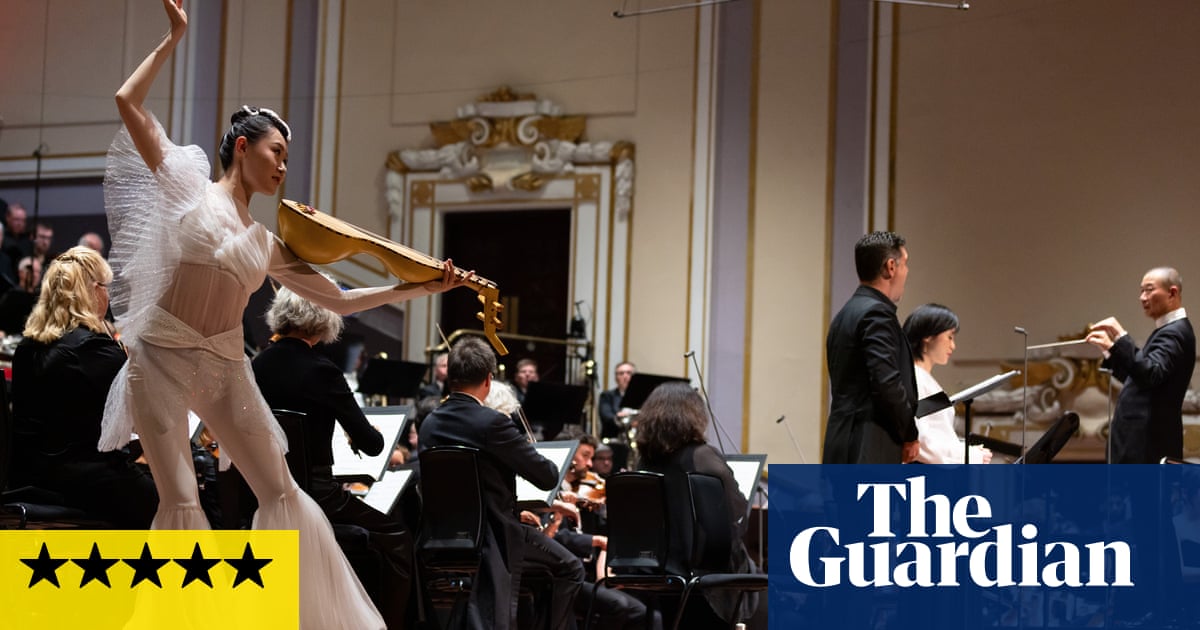
Edinburgh International festival director Nicola Benedetti has framed her first festival with the question: “Where do we go from here?” A question, she explained in a short speech before the opening concert, that she believes has helped the event refocus and develop an artistic programme centred on “dialogue and shared points of experience”.
There could hardly have been a better piece to open this year’s festival, then, than Tan Dun’s Buddha Passion (2018), receiving its Scottish premiere. The work’s key message – that truth and interdependency are the basis for a harmonious world – resonates closely with the ethos of Benedetti’s vision.
Buddha Passion was inspired by murals dating from the 4th-14th centuries in the Mogao caves in China’s Gansu province. The Chinese-American composer’s work sets an assortment of Buddhist texts in a mixture of Chinese, Sanskrit and English for four main vocal soloists, two Indigenous singers, two choruses and symphony orchestra. Comprising a prologue and six acts, it presents a series of tableaux symbolising the importance of love and compassion, and depicts the path towards enlightenment.
Each act is made up of a self-contained allegorical episode, with the soloists and chorus adopting different roles in the drama, before concluding in an ode meditating on the moral teachings of each tale. With EIF trialling new, slimmed-down concert programmes, translations were provided by supertitles.
Tan Dun directed the Royal Scottish National Orchestra with economy of gesture, saving his energies for the score’s most cathartic moments, which come at the end of the third and sixth acts. The orchestra responded with a breathtaking spectrum of dynamic hues, from the quiet, luminescent string playing of the opening to the warm blaze at the end, as the Buddha enters nirvana. The blend of western and Chinese sonorities felt natural and authentic.
The six soloists were impressive across the board, but Canadian baritone Elliot Madore deserves particular praise for his compelling delivery of a challenging part that includes overtone singing and switching between roles including a king, an emperor and the Buddha himself. Chen Yining (pipa player and dancer) and Indigenous singers Batubagen and Tan Weiwei brought additional elements of beauty and theatre in the fifth act: Heart Sutra.
The Edinburgh Festival Chorus and the RSNO Junior Chorus rose spectacularly to the occasion. Special praise, too, goes to the RSNO’s four percussionists, who moved nimbly between the impressive range of instruments that occupied the entire width of the Usher Hall stage, including water bowls and Chinese cymbals. Their contribution greatly enhanced Tan Dun’s magical soundworld, rendered by unusually imaginative orchestration, in this uplifting performance.












